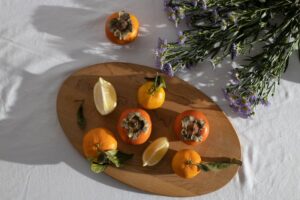Some surprising research on cold and 7 ways to avoid the winter doldrums

It’s time to lose the wait.~Chaplain Norris Burkes syndicated column on January 20, 2019
Do you suffer from the winter doldrums and find it hard to get moving on your intellectual projects? February is often the coldest month of the year in the Northern Hemisphere. And that’s without the bone-chilling, life-threatening polar vortex we all just experienced. But that doesn’t mean you should just curl up, try to stay warm and forget about your intellectual pursuits. Before I go into the 7 ways to stay productive when it cold, let me share some surprising research with you.
Two researchers, Amar Cheema, University of Virginia, and Vanessa M. Patrick, University of Houston decided to look into the “Influence of Warm versus Cool Temperatures on Consumer Choice: A Resource Depletion Account” and found results held across five different studies, including gambling choices, product adoption (cellphone plan) selection, and proofreading decisions. The study that most interests me is the one related to proofreading since it is most likely to be important to academic writing tasks.
Participants in the study were asked to proofread an article in a room controlled for temperature, at a warm (77°F) or a cool (67°F) using a generally accepted baseline of 72°F as the point at which most humans are most comfortable, a mere 5°F variation in either direction. Results showed participants in the warm room performed significantly worse than those in the cool room: in the warm environment, participants missed nearly half of all the spelling and grammatical errors, while those in the cool environment only missed a quarter of the embedded mistakes. The researchers posit that the link between temperature and complex decision-making is because it takes more energy (glucose) to cool down the body and the brain that it does to heat it up, so we have fewer resources to devote to cognitive functioning; this was confirmed by depleting glucose supplies for half the participants before placing them in a warm or cold environment and asking them to proofread.
What does this mean for you? It’s time to embrace the cold and use it for your cognitive advantage! The energy from glucose is vital to the work of your brain, so you don’t want it to be depleted as you contemplate and process complex information. Or as Allison Levine humorously suggests, “Cold makes us smarter.”
In addition to knowing that a slightly colder environment can actually help you think, there are some other basic things you can do to keep moving on your projects to stay out of the winter doldrums.
Seven ideas to help you avoid the winter doldrums
- Get moving: You don’t have to go outside and freeze, just find some ways to move that are easily accessible to you. I have an upstairs office, and I make it a point to go up and down the stairs frequently. For those of you that sit at a desk, this helps to keep the blood from pooling in your feet. You need that blood flow to help you think, too.
- Set goals that enliven you: what projects would be fun to work on? Something that you actually feel excited about researching or writing about? Did you just find out about a new portrait of Jane Austen or newly released results from a longitudinal look at brain chemistry and depression? Or are there some new tools you would like to learn to create a better presentation? Some people really enjoy poking around in software to figure out what can be done. What fires you up, and makes you want to jump for joy?
- Small bites: Set yourself up for success by keeping the goals in small, manageable bits. “This week I will read one article on the topic that interests me.” Not: “I will finish my book from start to finish in the next few weeks.” That sort of all or nothing thinking is more harmful than helpful. S.M.A.R.T. goals are specific, measurable, achievable, relevant, and time-bound.
- Healthy bites: Remind yourself that food is fuel, and you want the right kind of fuel to feed your brain. Fruits, vegetables and protein, and avoid too many of the “comfort” foods that are often overloaded with sugar and carbohydrates. Hot tea or simply water to keep yourself hydrated is also important. Lack of hydration makes you mentally sluggish while staying hydrated can help you avoid headaches and improve your energy.
- Clean up: Take advantage of being inside during cold weather by cleaning up your office. You aren’t going to want to tackle that pile of paper, or old computer files once the weather warms up, the days get lighter and longer and you can go outside to play. Academics are notorious for being unwilling to delete anything or throw anything away because they never know when they might have a need for the information. Put projects you have finished in storage bins, label them clearly, then put them out of sight. You can put data files on external drives with archiving dates. Uncluttering your space will unclutter your mind and create a better flow for your new projects.
- Work late (sometimes): As long as working late does not interfere with your family or social life, which are both important to mental well-being and keeping your brain fit for intellectual work, stay a bit later at the office or work longer into the evening at home when it’s cold outside. Maybe this is your chance to curl up with a book you need to get read. Some people also find that being at the office after most everyone else has left can create a quiet and truly productive setting. Once it gets lighter and warmer outside, you may want to be outdoors more than you want to be inside working on a paper.
- Plan your next break: An actual break from your work, whether it’s a long weekend alone with your partner or a week at the beach with your kids. Planning the break can make you feel good, and knowing that it’s coming can help motivate you now to stay productive. After all, you don’t want to cancel that lovely cabin in the mountains, or the tickets to the amusement park, do you? It will cost you, emotionally and financially if you do.
I hope these seven tips will help you stay active, productive and avoid the winter doldrums. And remember, a little bit of cold can go a long way toward assisting your cognitive discernment and decision-making abilities. Not to mention avoiding those typographical and grammatical errors.
Tags: attitude, get organized, Getting Organized, goal setting






